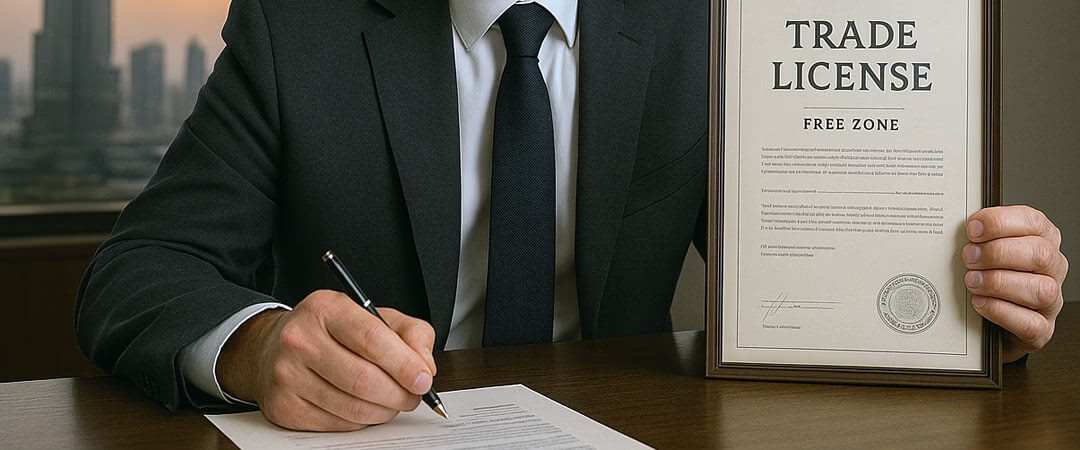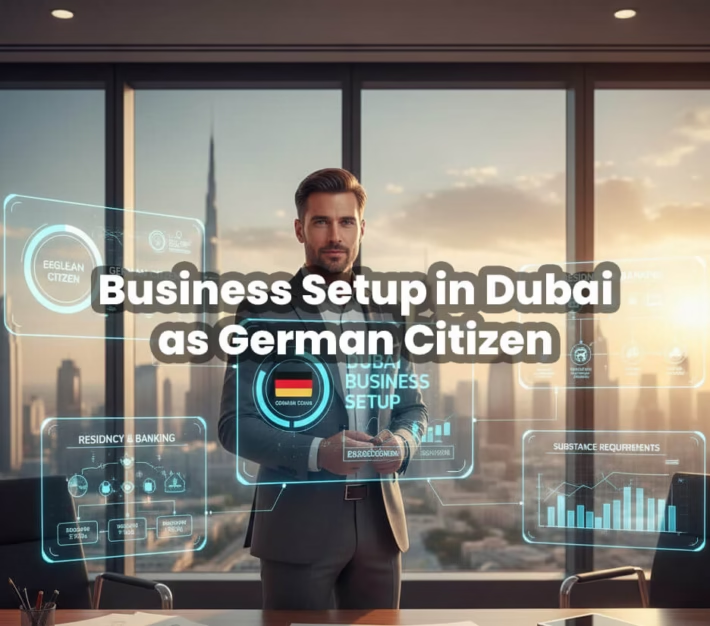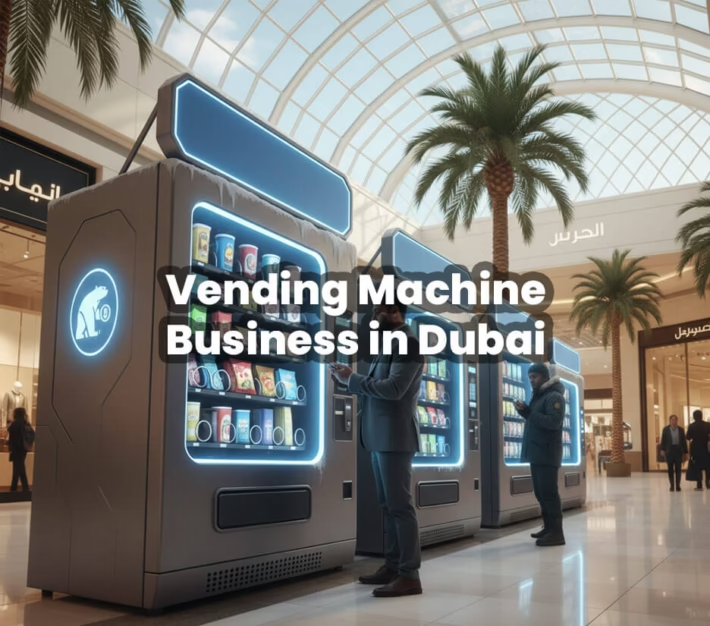Benefits of Dual Licensing in Dubai

Dual Licenses in Dubai
If you already have setup a company in Dubai and you’re looking to grow without the usual red tape, dual licensing might be your next smart move.
This article is for business owners who want more reach, more control, and more room to scale without opening a second company from scratch.
Dual licensing lets you legally operate in both free zones and the mainland using a single entity. That means you can keep the tax benefits and setup ease of use in your free zone base while still tapping into the local UAE market.
What is Dual Licensing in Dubai?
Dual license lets a company carry out business in both a UAE free zone and the Dubai mainland without setting up two separate legal entities.
You continue operating under your current license but receive legal permission to extend your activities into the other jurisdiction.
It’s a practical solution for businesses that want to grow, add new services, or reach more customers across Dubai. Instead of starting a second company, dual licensing helps you do more with the one you already have.
Why Does Dual Licensing Exist?
Free Zone companies couldn’t operate in the mainland without going through the whole process of setting up a second mainland entity. That meant new paperwork, local sponsors, new bank accounts, more staff registrations the whole nine yards. A quick solution was to let Free Zone companies apply for a dual license that gives them approval to operate in the mainland under specific conditions without creating a second company.
This helps the UAE remain attractive to foreign investors and makes it easier for businesses to grow organically.
Key Authorities Involved in Dual Licensing in Dubai

Dual licensing isn’t something you can get from just one government body. It’s a coordinated approval process that involves two separate authorities:
Free Zone Authority
When you first set up your business in Dubai Free Zone, you chose a specific Free Zone based on your industry, needs, and tax benefits. There are more than 40+ free zones in the UAE, each with its own set of rules, internal processes, and administrative requirements. Your free zone is the “parent jurisdiction” of your business. They:
- Issue your original trade license
- Approve your legal structure
- Govern your lease, visas, and other internal matters
When applying for a dual license, your Free Zone authority must:
- Provide a No Objection Certificate (NOC) to the DET.
- Confirm that your company is in good standing.
- Verify that your proposed dual-license activities match or align with your existing license.
- May charge an internal fee for issuing the NOC or supporting documents.
Free Zones that Support Dual Licensing:
| Free Zone | Industry Focus | Notes |
|---|---|---|
| DMCC (Dubai Multi Commodities Centre) | Commodities, trade, fintech, consulting | One of the most active free zones offering dual licensing with DET |
| Dubai Internet City (DIC) | Tech, software, media | Allows dual licensing under strict activity alignment |
| Dubai Media City | Media, PR, content production | Frequently used by marketing & production firms for mainland access |
| Dubai Silicon Oasis (DSO) | Tech, innovation, electronics | Streamlined process with DET |
| Dubai South | Logistics, aviation, e-commerce | Offers flexibility for dual licensing in trade and logistics |
Not all free zones offer dual licensing, and some restrict it to specific sectors or business types. Our free zone business experts will help you identify which zones work best for your business practices.
The Department of Economy and Tourism (DET)
Department of Economy and Tourism (DET) is the mainland authority that regulates business activities outside of free zones, meaning anywhere else in Dubai.
If you want to legally operate or provide services to clients on the mainland, DET approval is non-negotiable.
They are the ones who:
- Issue the dual license, which extends your activity to the mainland
- Check your business activity against their approved list
- Confirm there is no conflict of interest or regulatory issue
- May request additional documents (like lease agreements, MOA, etc.)
- Collect the applicable government fees for the dual license
DET Requirements for Issuing a Dual License:
- A valid trade license from an approved free zone
- A No Objection Certificate (NOC) from your free zone authority
- Activity alignment must mirror or complement what your current license allows.
- Payment of the DET dual license issuance fee.
Some activities require additional approvals from external departments, such as:
- Dubai Health Authority (DHA) for medical-related services
- KHDA for education services
- Ministry of Economy for professional consultancy firms
Common Activities Approved for Dual Licensing
| Sector | Sample Activities | Notes |
|---|---|---|
| Technology & IT | IT consultancy, software development, cloud services | Popular among companies in DIC, DSO, and DMCC |
| Media & Marketing | Advertising, branding, content production | High demand, often granted under Dubai Media City licenses |
| Logistics & Trade Support | Freight coordination, supply chain planning | Useful for JAFZA, Dubai South companies |
| Business Advisory | Management consultancy, HR consulting, training services | Widely allowed, especially for firms in DMCC and DIFC |
| Creative Services | Video production, graphic design, UX/UI services | Strong use case for dual operation in DMC and Dubai mainland |
Restricted Activities or Separate Setup
| Sector | Examples | Notes |
|---|---|---|
| Healthcare | Clinics, physiotherapy, diagnostic labs | DHA approvals needed; often requires full mainland presence |
| Education | Training institutes, schools | KHDA approval required; dual licensing not typically sufficient |
| Retail & F&B | Cafes, restaurants, and consumer goods stores | Often needs a physical presence and separate DET trade license |
| Construction & Contracting | On-site labor, engineering | Complex licensing; usually not suitable for dual licensing without local partners |
Who Can Benefit from Dual Licensing?

Dual licensing is ideal for structured businesses with a clear growth strategy looking to expand efficiently without added admin burdens. It’s not suited for solo freelancers just starting out, holding companies with no active operations, or businesses that trade internationally without local UAE dealings. Businesses that benefit from having dual licenses are as follows:
A) Technology & Software Firms
- Freezone: Dubai Internet City, Dubai Silicon Oasis, DMCC
- Mainland need: Enterprise clients, government contracts, system installations
Why it Helps:
- Most government and corporate clients in Dubai are mainland-based
- RFPs and tenders often require a DET license to qualify
- Dual licensing allows tech firms to sell, support, and invoice clients without setting up a separate legal entity
Example:
An IT security company in Dubai Internet City wants to provide on-site support to local banks and government offices. With dual licensing, they can legally install software, offer training, and sign service agreements without breaching licensing rules.
B) Media, Marketing, and Production Agencies
- FreeZone: Dubai Media City, TwoFour54, Dubai Studio City
- Mainland need: On-site shoots, client meetings, campaign delivery
Why it Helps:
- Creative agencies often need to meet clients in person, attend pitches, and execute mainland projects
- Many ad contracts require a mainland (DET) license for budget approval or compliance
- Dual licensing allows them to operate as one entity while working across both free zone and mainland campaigns
Example:
A production house in Dubai Media City is hired to produce TV ads for a retail chain headquartered in the mainland. They can scout locations, shoot in malls, and process payments without any licensing conflict, thanks to dual licensing.
C) Logistics & Supply Chain Businesses
- Freezones: JAFZA, Dubai South
- Mainland need: Delivery coordination, warehousing, on-ground operations
Why it Helps:
- Many logistics firms use free zones for tax and customs advantages but need to operate inside the mainland for delivery or distribution
- Without dual licensing, they’d need to open a second logistics company just to handle local operations
Example:
A shipping company in JAFZA handles sea freight but wants to provide final-mile delivery in Deira and Al Quoz. A dual license allows them to coordinate local fleet management and warehousing from their existing structure.
D) Business Consulting & Advisory Firms
- Freezones: DMCC, DIFC, Dubai Knowledge Park
- Mainland need: Serve clients based in mainland Dubai, especially for compliance, HR, and business strategy
Why it Helps:
- Advisory firms often work with clients that demand licensed partners inside their jurisdiction
- Some industries require consultants to be licensed in the same zone as the entity they advise (for financial compliance, tax, or HR policy work)
- Dual licensing solves this without needing to split the brand across two entities
Example:
An HR consultancy based in DMCC is hired by a manufacturing company in Al Quoz. With a dual license, the firm can sign the engagement letter, handle employee audits, and provide ongoing support, all legally.
E) E-commerce & Fulfillment Operators
- Freezone: Dubai CommerCity, Dubai South, DAFZ
- Mainland need: Local warehousing, same-day delivery, product handling
Why it Helps:
- Free zones are perfect for e-commerce business setup – but you can’t deliver directly to mainland customers without licensing
- Dual licensing lets companies maintain their back-end operations in the free zone while handling last-mile logistics legally
Example:
A niche fashion brand runs its operations from CommerCity but wants to do cash-on-delivery and direct drops to mainland customers. With a dual license, it can partner with delivery firms, hire local staff, and offer next-day service without breaking compliance.
F) Professional Services Firms [Law, Finance, Engineering]
- Freezone: DIFC, DMCC, Dubai Knowledge Park
- Mainland need: Work with regulated mainland clients or submit government-facing documents
Why it Helps:
- Professional services firms often serve regulated entities or have to appear before government bodies
- Dual licensing provides legal legitimacy and allows interaction without needing a full office in mainland
Example:
An architectural design firm licensed in the Dubai Design District wants to submit project documents for a government housing project. The DET dual license lets them legally deliver services, collect payments, and sign contracts with a government department.
Legal Framework and Government Support
The legitimacy and enforceability of dual licensing in Dubai stem from a clearly defined regulatory structure that involves coordination between individual free zone authorities and the Department of Economy and Tourism (DET). While the process varies slightly depending on the free zone, the underlying legal principles remain consistent across jurisdictions.
The Role of the Department of Economy and Tourism (DET)
The DET is the primary regulatory body responsible for issuing business licenses for commercial activity in mainland Dubai. Any business seeking to legally operate in the mainland, regardless of where its primary license is issued, must be recognized by the DET.
Under Dubai’s dual licensing framework, a free zone company may apply for a secondary license through the DET that permits the company to carry out specific business activities on the mainland. The DET grants this approval upon receipt of confirmation from the free zone authority that the business is compliant, that the proposed activity is permitted, and that the business is eligible for dual licensing under its current legal structure.
DET license is governed by various regulatory instruments, including the Dubai Commercial Companies Law, free zone regulatory memorandum of understanding (MoUs), and inter-agency policies aimed at fostering foreign investment and economic diversification.
Free Zone Authority Involvement
Each free zone authority functions as the original licensing body for companies established within its jurisdiction. When a free zone company seeks a dual license, the authority must first evaluate and approve the request. This process involves verifying that:
- The company is in good standing (i.e., no outstanding fees, penalties, or compliance violations)
- The proposed mainland activity matches or aligns with the business activity listed on the original free zone license
- The activity is permitted for dual licensing under DET’s published list of approved activities
Once confirmed, the free zone authority issues a No Objection Certificate (NOC), which becomes a foundational document in the dual license application submitted to the DET.
MoUs and Legal Agreements Between Authorities
The dual licensing framework is supported by formal agreements between the DET and several major free zones. These Memoranda of Understanding (MoUs) establish the legal mechanisms through which dual licenses can be issued and outline the scope of permissible activities, documentation requirements, and mutual responsibilities of the respective authorities.
Some of the free zones that have established such agreements with DET include:
- Dubai Multi Commodities Centre (DMCC)
- Dubai Silicon Oasis (DSO)
- Dubai Internet City (DIC)
- Dubai South
- Dubai Media City
- Dubai Knowledge Park
- Dubai Airport Freezone (DAFZ)
Each of these zones has developed internal procedures for processing dual license requests and liaising with DET to ensure compliance. While the agreements may vary in scope, they share a consistent objective: to enable free zone companies to legally participate in mainland commercial activities without requiring a complete legal restructuring.
Documentation Process
The general process for obtaining a dual license includes the following steps:
- Internal Review by Free Zone Authority: The business submits a dual licensing request. The authority reviews the company’s compliance record, license details, and activity match.
- Issuance of NOC: Upon successful review, the free zone issues a No Objection Certificate, allowing the company to apply for a DET license.
- Application to DET: The applicant submits the NOC, existing trade license, passport copies of shareholders, and details of the desired mainland activity to DET.
- Activity Approval: DET reviews the submission against its list of eligible dual-license activities.
- License Issuance: Once approved, DET issues the secondary license. The company may now legally operate the approved activity within the mainland.
Since timelines and requirements vary by Free Zone and activity, working with EZONE’s expert advisors helps keep your documentation smooth and on track.
Governmental Position
The introduction and expansion of dual licensing frameworks in the UAE align with the government’s broader strategic goals to improve ease of doing business, enhance regulatory transparency, and attract international investment. These frameworks are also intended to support the federal agenda of increasing economic integration between free zones and the broader domestic economy.
Dubai’s government has repeatedly emphasized its commitment to supporting investor-friendly regulatory environments, and dual licensing serves as a practical instrument in advancing that goal. Public announcements, investor circulars, and policy updates from both DET and free zone authorities confirm the state’s endorsement of dual licensing as a long-term structural model.
Compliance Considerations
Although dual licensing is designed to simplify cross-jurisdictional operations, businesses must still maintain full compliance with all relevant laws. This includes renewing both the free zone license and the DET dual license on time, maintaining accurate records, and submitting tax filings as required under UAE corporate tax law and VAT regulations.
Any attempt to engage in unapproved activities or to operate outside the scope of the DET license can result in fines, license suspension, or blacklisting.
Companies must also ensure that any advertising, employment contracts, or commercial agreements executed under the dual license accurately reflect the entity’s legal standing and scope of approval.
Final Thoughts
For established firms focused on scalability and long-term regional integration, dual licensing is not just a convenience, it is a competitive advantage.
To explore whether this model aligns with your business objectives, consult with EZONE qualified advisors and begin the dual licensing process with clarity and confidence.
EZONE specialize in creating content that highlights business setup and consultancy services. We provide expert insights on company formation, licensing, and the latest industry developments. Through this blog, we aim to equip entrepreneurs and businesses with the knowledge they need to navigate opportunities and challenges in today's market.



